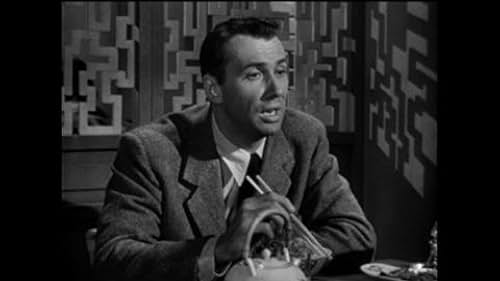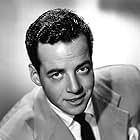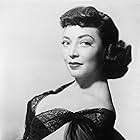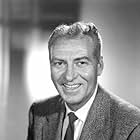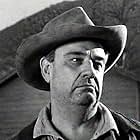IMDb RATING
7.1/10
3.9K
YOUR RATING
A sniper kills young brunettes as the police attempt to grapple with the psychology of the unknown assailant.A sniper kills young brunettes as the police attempt to grapple with the psychology of the unknown assailant.A sniper kills young brunettes as the police attempt to grapple with the psychology of the unknown assailant.
- Nominated for 1 Oscar
- 2 nominations total
Fred Aldrich
- Man at Line-Up
- (uncredited)
John H. Algate
- Man
- (uncredited)
Jessie Arnold
- Woman
- (uncredited)
Walter Bacon
- Passerby On Sidewalk
- (uncredited)
Alice Bartlett
- Woman
- (uncredited)
Harry Bechtel
- Man
- (uncredited)
Lilian Bond
- Mrs. Fitzpatrick
- (uncredited)
Gail Bonney
- Woman at Darr Murder Scene
- (uncredited)
John Bradley
- Rookie Cop
- (uncredited)
- Director
- Writers
- All cast & crew
- Production, box office & more at IMDbPro
Storyline
Did you know
- TriviaAfter making this film, Adolphe Menjou, a very vocal anti-communist, was asked why he agreed to work with director Edward Dmytryk, who had been blacklisted for his communist sympathies. Menjou replied, "Because I'm a whore".
- GoofsLate in the film, Eddie is seen crouched and aiming for a kill shot on a smokestack painter. The painter throws his pail of white paint onto the street below to get the attention of the people below who could not hear him and the pail and its contents splatter on the ground. After Eddie shoots the man and the camera returns to the street, the pavement is unmarked.
- Quotes
E.R. doctor: [talking to the duty nurse] You know how much coffee I've had today? 17 cups. The Brazilians ought to give me a medal.
- Crazy creditsA word about the picture which follows: High among police problems is that of the sex criminal, responsible last year alone for offenses which victimized 31,175 women. Adequate and understanding laws do not exist. Law enforcement is helpless. Here, in terms of one case, is the story of a man whose enemy was womankind.
- ConnectionsEdited into The Green Fog (2017)
- SoundtracksPennies from Heaven
(uncredited)
Music by Arthur Johnston
Words by Johnny Burke (1936)
Played by Marie Windsor in piano bar
Featured review
For much of this film noir, it was almost more of a character study than a crime movie, since there was very little action and only some suspense in the final 10 minutes. However, I'm not complaining. I found the film got better and better as it went along and was an interesting story overall with an excellent cast. When the action did occur- the sniper's shots - they were shocking scenes, shocking in their suddenness.
I appreciated the fact they shot this on the streets in San Francisco, where the story takes place, instead of some Hollywood back-lot. That city, in particular, with its steep streets and bay-windowed houses, is fun to look at in any era. This happens to be very early 1950s. As with many noirs, the photography was notable, too. I liked a number of the camera angles used in this movie.
I also appreciated that cast. Arthur Franz is excellent in the lead role of the tormented killer, "Eddie Miller." Eddie knows right from the start that he's a sick man, that he can't help himself and that he needs him. (So, why didn't he turn himself in?) It was fun to see an older and sans-mustached Adolphe Menjou as the police lieutenant, and Humphrey Bogart- lookalike Gerald Mohr as a police sergeant. It was most fun, being a film noir buff, to see Marie Windsor. This "queen of noir," unfortunately, didn't have that big a role in here.
What really struck were some bizarre scenes, things I have never seen in these crime movies on the '30s through '50s. For example, there was an investigation of sniper suspects held at the police building in which three suspects at a time were grilled - in front of about a hundred cops. The grilling was more like taunting and insult-throwing by this sadistic cop in charge, who made fun of each guy. Man, if they tried that today, there would lawsuits up the wazoo (so to speak).
Then there was this James Dean-type teen who was on top of a city building with a rifle, right in the middle of this citywide sniper scare. The cops bravely bring him in without killing him and are yelled at for doing so, since the gun wasn't in serviceable order. Duh! The cops were supposed to just see a guy waving a gun on top of a rooftop and let him go, no questions asked?
A number of things in here stretched credibility, but there were some intelligent aspects, too. "Dr. Richard Kent," played by Richard Kiely, was a case in point. He was the police psychologist and gave strong speeches (the film got a little preachy at times) advocating what should be done with sex-crime offenders, some of it Liberal and some of it Conservative in nature. He made some good points. "Eddie" had sex problems, I guess, but I don't remember it being discussed in the film. Maybe I missed that. The film did miss that aspect: Eddie's background, which triggered all the violence.
The second half of this film is far better, because the killings increase and the suspense starts to mount. As it goes on, we get more of a feel of what motivates Eddie as we see his reactions to people and how he views things they say. I was surprised, frankly, that he didn't shoot his nasty female boss, since he only harmed women. She was the nastiest woman in the film, and nothing happened to her. What was Eddie thinking?
I appreciated the fact they shot this on the streets in San Francisco, where the story takes place, instead of some Hollywood back-lot. That city, in particular, with its steep streets and bay-windowed houses, is fun to look at in any era. This happens to be very early 1950s. As with many noirs, the photography was notable, too. I liked a number of the camera angles used in this movie.
I also appreciated that cast. Arthur Franz is excellent in the lead role of the tormented killer, "Eddie Miller." Eddie knows right from the start that he's a sick man, that he can't help himself and that he needs him. (So, why didn't he turn himself in?) It was fun to see an older and sans-mustached Adolphe Menjou as the police lieutenant, and Humphrey Bogart- lookalike Gerald Mohr as a police sergeant. It was most fun, being a film noir buff, to see Marie Windsor. This "queen of noir," unfortunately, didn't have that big a role in here.
What really struck were some bizarre scenes, things I have never seen in these crime movies on the '30s through '50s. For example, there was an investigation of sniper suspects held at the police building in which three suspects at a time were grilled - in front of about a hundred cops. The grilling was more like taunting and insult-throwing by this sadistic cop in charge, who made fun of each guy. Man, if they tried that today, there would lawsuits up the wazoo (so to speak).
Then there was this James Dean-type teen who was on top of a city building with a rifle, right in the middle of this citywide sniper scare. The cops bravely bring him in without killing him and are yelled at for doing so, since the gun wasn't in serviceable order. Duh! The cops were supposed to just see a guy waving a gun on top of a rooftop and let him go, no questions asked?
A number of things in here stretched credibility, but there were some intelligent aspects, too. "Dr. Richard Kent," played by Richard Kiely, was a case in point. He was the police psychologist and gave strong speeches (the film got a little preachy at times) advocating what should be done with sex-crime offenders, some of it Liberal and some of it Conservative in nature. He made some good points. "Eddie" had sex problems, I guess, but I don't remember it being discussed in the film. Maybe I missed that. The film did miss that aspect: Eddie's background, which triggered all the violence.
The second half of this film is far better, because the killings increase and the suspense starts to mount. As it goes on, we get more of a feel of what motivates Eddie as we see his reactions to people and how he views things they say. I was surprised, frankly, that he didn't shoot his nasty female boss, since he only harmed women. She was the nastiest woman in the film, and nothing happened to her. What was Eddie thinking?
- ccthemovieman-1
- Feb 28, 2007
- Permalink
- How long is The Sniper?Powered by Alexa
Details
- Runtime1 hour 28 minutes
- Color
- Aspect ratio
- 1.37 : 1
Contribute to this page
Suggest an edit or add missing content


